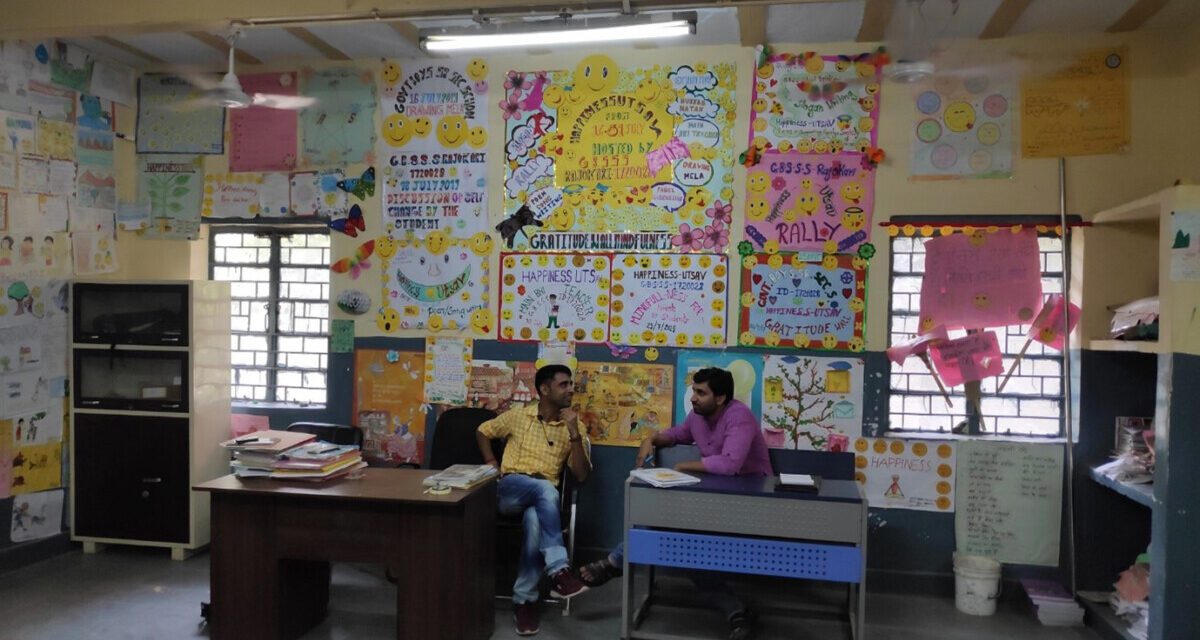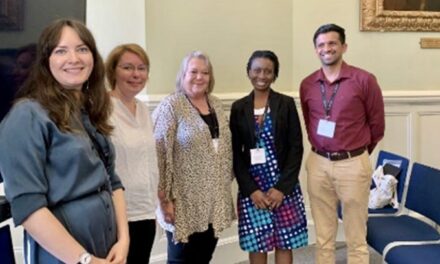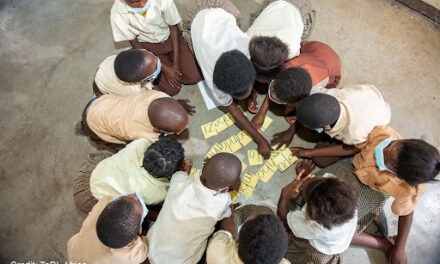This blog was written by Ankit Saraf, Oxford Policy Management. It is based on a presentation given at the 2023 UKFIET conference.
Peer mentoring of mentors, as a mechanism for the job-embedded professional development of mentors, provides opportunities for more competent mentors to guide the development of their mentor colleagues. The mentoring relationship’s implied support and guidance help mentees grow professionally, become reflective practitioners, and improve their mentoring practice. Thus, improving the quality of the peer mentoring relationship would benefit participants in a mentoring programme.
This blog describes a study that explored a two-level peer mentoring initiative in Delhi state, India, called the Delhi Mentor Teacher Programme: a first level in which mentors who operated at the cluster level (mentor teachers, MTs) mentored the school-based mentors (teacher development coordinators, TDCs) in their cluster, and a second level in which these TDCs were tasked with the professional development of their teacher colleagues through mentoring. The first level was the focus of this study.
The study adopted the grounded theory methodology (Charmaz, 2006). The investigation centered on participant narrations, as shared by them during semi-structured interviews. Eight MT-TDC pairs were interviewed (sixteen interviews in total). Additionally, I conducted non-participant observations for each of the eight MT-TDC dyads as a means of triangulating the findings.
My principal finding indicates that within the context of educational reform driven programmes, the MT-TDC mentoring interactions evolved into three identifiable categories of help and support.
Socio-emotional support
The first category describes the provision of socio-emotional support within peer mentoring relationships. Under this category of social and emotional support, five characteristics that defined this domain were identified. The mentees (TDCs) referred to their mentors (MTs) as (a) trustworthy, honest, and with positive intent, and (b) easily accessible, even when they were busy themselves. TDCs and MTs also provided details of (c) how they understood the ‘burden’ under which each of them operated, and (d) how the informal nature of the relationship enabled them to interact in a friendly and personal manner. Finally, under this category of socio-emotional support, participants explained (e) how their mentoring interactions contributed to building their personal confidence.
Institutional support
The second category describes the provision of institutional support within peer mentoring relationships. These supports were characterised by the participants in three ways. MTs and TDCs describe institutional support wherein (a) they work together based on the MTs elicitation of open-ended queries for support. Institutional supports also consisted of (b) mentoring interactions wherein MTs provided TDCs (and other stakeholders in the school) with planning direction and knowledge with respect to implementation of the myriad programmes under the reform agenda of the present Government of Delhi. TDCs also described institutional support as (c) mentoring interactions wherein they identified problems that arose on a daily basis related to the various programmes and sought specific advice and guidance from their MTs to resolve those problems.
These two categories tell us that MTs and TDCs developed peer mentoring relationships that helped them craft a safe space to discuss their emotions, and enabled TDCs to seek support and guidance from the MTs to navigate the technical specifics related to implementation of the various programmes launched by the government. These two categories of mentoring interactions describe work in which the focus was not the teaching or classroom practice of the schools’ teachers. Investigations into mentoring work related to teachers’ instructional practice formed the next category of interactions between peer mentors.
Instructional support
The third category describes the provision of instructional support within peer mentoring relationships. Under this category, participant MTs and TDCs engaged in conversations amongst themselves and with other stakeholders such as other MTs, TDCs, and school teachers resulting in development of communities of practice. However, it is to be noted that these communities of practice developed not due to the mere presence of MTs or TDCs in the schools, but due to the larger ecosystem of education reforms instituted by the present government in Delhi. Engagement in communities of practice for the MTs and TDCs consisted of (a) participation in regular, scheduled intra- and inter-subject faculty meetings which primarily focused on the implementation of top-down pedagogical practices in the school, and (b) participation in classroom observations and discussions/feedback based on those observations, both among themselves and with teachers.
This category of peer mentoring relationships also included interactions which enabled the (c) professional growth and learning of MTs and TDCs due to the sharing of ideas, suggestions, techniques, and strategies, and feedback/discussions on those ideas related to instructional practices. This study shows that professional development of mentors (and teachers) is best achieved through ongoing opportunities and interactions that are hands-on, contextual, practical, relaxed, and engaging, rather than one-shot workshops or seminars. These three attributes of engagement in communities of practice, i.e., teacher meetings, classroom observations, and professional growth and learning, indicate that MTs and TDCs also crafted their peer mentoring relationships to focus on the instructional work that they and the school teachers carry out.
Thus, MTs and TDCs engaged in peer relationships that resulted in provision of three categories of support, i.e., socio-emotional, institutional, and instructional, to successfully implement the various programmes and navigate the challenges related to the work of teaching-learning. These findings have important implications for programme design and the development of 9.7 million teacher workforce in India, such that attempts are made to create a structure and environment in which educative and developmental peer mentoring relationships can flourish.





